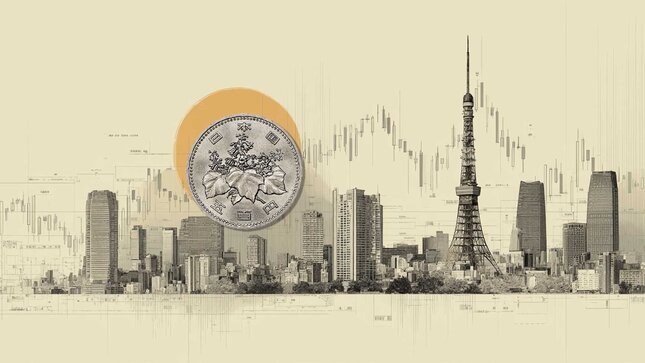I noted yesterday that my Twitter feed seems to be full of bears apoplectic with anger while bulls are generally calm and chill. Of course bears have been calling for the end of the world ever since we hit near double digit inflation in 2021 and can’t understand how the economy has managed to remain buoyant and worse - how the markets have crashed.
The recession was supposed to come at the end of 21, then start of 22 then end of 22 then start of 23 then... Well you get the idea. Like a broken clock that is right just by luck twice a day the bears may yet be proven right. Or maybe not. Maybe today’s bears are just the ghost of Robert Prechter reborn to amuse us with their ridiculous stubbornness that borders on religious fanaticism. (Yea I know Prechter isn’t dead - but if you followed his trading advice your account certainly is)
All of this plays into my thesis that Forecasting is for Fools. Yesterday it rained all day long in New York city. Not just a drizzle but an endless downpour from 6AM until midnight. Now imagine if I came to you in the spring of 22 and asked you to tell me the exact day a year from now when it will pour endlessly in New York city. You would look at me like I am an idiot, maybe smile and do what? Make. A. Guess.
That is what all financial forecasts are. When it comes to long term weather forecasting we understand that intuitively, but when it comes to finance we tend to venerate the assessments of any analysts if they were lucky enough to guess correctly a year ago and better yet if they were lucky enough to guess correctly two years in a row. Then they can walk on water as Joe Granville once actually did in front of investors before plunging many of his followers into near bankruptcy with his idiotic forecasts in late 1970s and 1980s.
Back when I used to do the morning show at CNBC I would drive the anchors crazy by saying that I really did not have strong long term views and that at best I just tried to anticipate the next 72 hours. That wasn't a number that I just pulled out of my hat. That data point came from a one time visit to a quant fund in New York that was operating out of an opulent early 20th century beaux arts skyscraper with more computer power than the Pentagon. I found the sharp contrast between the ornate brickwork of the building and ultra modern luminescent decor of their offices to be so jarring that the visit stayed in my memory.
The guys at the quant fund told me that they ran thousands of tests on currency data against hundreds of technical and fundamental parameters and that the forecasting value of the data degraded by about a half within 24 hours and then disappeared entirely into noise 72 hours thereafter.
I know that we all like to think markets have memory and that squiggle on a chart 10 years ago will resonate with investors today - but that is just our mind playing pattern recognition tricks with us from our days on the African plain. The market is much more like the character from the movie Memento - a lost man who has no short term memory and stumbles forward in the day looking for what is next.
The “Memento”-like nature of the markets is the reason I day trade. Just as with weather I have far more confidence in what will happen within the next hour than I do the next year. I focus on the timeframe that gives me a modicum of control - but even that control is far from certain. Ask any New Yorker who has ever ducked into a subway on a nice sunny day only to pop out 15-20 minutes later to a torrential rainstorm that drenches all his clothes.
In my opinion forecasting is for fools but what’s even more foolish is to stick to your forecast in the face of all evidence to the contrary. If you stop trying to do the former you may be fortunate enough to avoid doing the later.
Past performance is not indicative of future results. Trading forex carries a high level of risk, and may not be suitable for all investors. The high degree of leverage can work against you as well as for you. Before deciding to trade any such leveraged products, you should carefully consider your investment objectives, level of experience, and risk appetite. The possibility exists that you could sustain a loss of some or all of your initial investment and therefore you should not invest money that you cannot afford to lose. You should be aware of all the risks associated with trading on margin, and seek advice from an independent financial advisor if you have any doubts.
Editors’ Picks

EUR/USD: US Dollar to remain pressured until uncertainty fog dissipates Premium
The EUR/USD pair lost additional ground in the first week of February, settling at around 1.1820. The reversal lost momentum after the pair peaked at 1.2082 in January, its highest since mid-2021.

Gold: Volatility persists in commodity space Premium
After losing more than 8% to end the previous week, Gold (XAU/USD) remained under heavy selling pressure on Monday and dropped toward $4,400. Although XAU/USD staged a decisive rebound afterward, it failed to stabilize above $5,000.

GBP/USD: Pound Sterling tests key support ahead of a big week Premium
The Pound Sterling (GBP) changed course against the US Dollar (USD), with GBP/USD giving up nearly 200 pips in a dramatic correction.

Bitcoin: The worst may be behind us
Bitcoin (BTC) price recovers slightly, trading at $65,000 at the time of writing on Friday, after reaching a low of $60,000 during the early Asian trading session. The Crypto King remained under pressure so far this week, posting three consecutive weeks of losses exceeding 30%.

Three scenarios for Japanese Yen ahead of snap election Premium
The latest polls point to a dominant win for the ruling bloc at the upcoming Japanese snap election. The larger Sanae Takaichi’s mandate, the more investors fear faster implementation of tax cuts and spending plans.
RECOMMENDED LESSONS
Making money in forex is easy if you know how the bankers trade!
I’m often mystified in my educational forex articles why so many traders struggle to make consistent money out of forex trading. The answer has more to do with what they don’t know than what they do know. After working in investment banks for 20 years many of which were as a Chief trader its second knowledge how to extract cash out of the market.
5 Forex News Events You Need To Know
In the fast moving world of currency markets where huge moves can seemingly come from nowhere, it is extremely important for new traders to learn about the various economic indicators and forex news events and releases that shape the markets. Indeed, quickly getting a handle on which data to look out for, what it means, and how to trade it can see new traders quickly become far more profitable and sets up the road to long term success.
Top 10 Chart Patterns Every Trader Should Know
Chart patterns are one of the most effective trading tools for a trader. They are pure price-action, and form on the basis of underlying buying and selling pressure. Chart patterns have a proven track-record, and traders use them to identify continuation or reversal signals, to open positions and identify price targets.
7 Ways to Avoid Forex Scams
The forex industry is recently seeing more and more scams. Here are 7 ways to avoid losing your money in such scams: Forex scams are becoming frequent. Michael Greenberg reports on luxurious expenses, including a submarine bought from the money taken from forex traders. Here’s another report of a forex fraud. So, how can we avoid falling in such forex scams?
What Are the 10 Fatal Mistakes Traders Make
Trading is exciting. Trading is hard. Trading is extremely hard. Some say that it takes more than 10,000 hours to master. Others believe that trading is the way to quick riches. They might be both wrong. What is important to know that no matter how experienced you are, mistakes will be part of the trading process.
The challenge: Timing the market and trader psychology
Successful trading often comes down to timing – entering and exiting trades at the right moments. Yet timing the market is notoriously difficult, largely because human psychology can derail even the best plans. Two powerful emotions in particular – fear and greed – tend to drive trading decisions off course.


